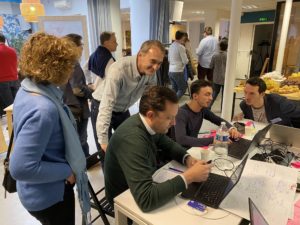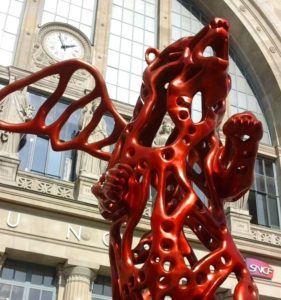What citizen behaviour for sustainable mobility?
What citizen behaviour for sustainable mobility?
Futura-Mobility led a workshop in May at the Global Mobility Executive Forum organised by Oliver Wyman in partnership with UC Berkeley. For two days at Station F in Paris, world leaders in mobility, start-ups, key public decision-makers, and representatives from academia gathered to discuss ‘Intelligent coalitions for sustainable mobility’.
The workshop led by the Futura-Mobility think thank focused on the changes needed in citizen behavior for sustainable mobility.
Around 30 people from 25 different organisations discussed this topic together. The future-forward scenarios published by Futura-Mobility provided inspiration for the participants, who then focused on scenario #3, entitled ‘planet first’. In this scenario, citizens have to make do with an energy quota: no mobility without clean energy, both in terms of pollutant emissions and material use.
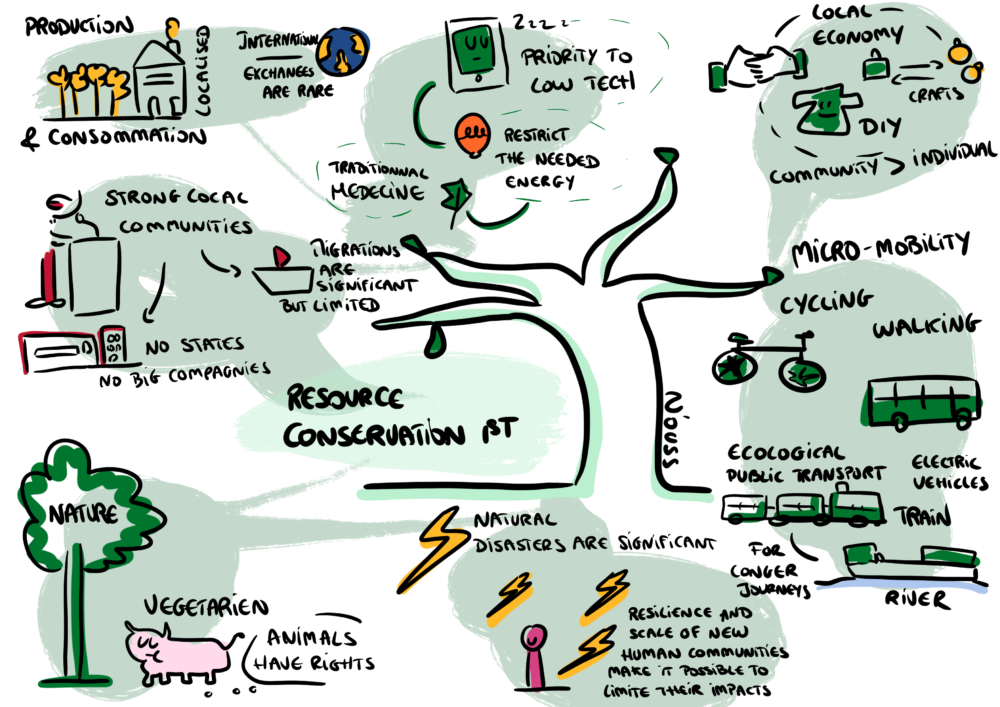
Seven sub-groups of 4 to 5 people formed to think about highly specific mobility needs: getting to a doctor’s appointment 3km from your home in the city, going on an international solo tour, organising a big party with the neighbours, and so forth.
The participants really got into the game! Yet it wasn’t easy working on these needs, since we’re not used to thinking under constraints (energy/efficiency/utility) when it comes to mobility! This calls for a real mindset shift.
During the workshop, plenty of thoughts and surprises were exchanged on the ‘planet first’ scenario:
The absence of a strong political vision for this scenario today: what vision, what dream, what model?
- The difficulty of mentally moving away from the association that ‘growth = technological progress = longer human life’;
- The magnitude of the challenge, which involves tackling a number of challenges at the same time;
- The incompatibility of capitalism as designed and operated today with this scenario;
- The need to differentiate the development model between developed and developing countries;
The fear of territorial and even community fragmentation, since not all territories have the same natural assets:
- How can we organise exchanges in such a way as to guarantee access to resources for all? How can we avoid excessive price differences from one territory to another?
- For such a scenario to succeed, all individuals and organisations need to be aligned with the objective and play the game. The non-participation of a few high-impact individuals (notably the most affluent) could ruin the scenario;
- The need for more efficient use of existing infrastructure, and perhaps less investment in heavy assets;
The need for global governance:
- The need for a governance organisation to steer the planet’s state of health;
- A question mark hangs over the size of the population the planet can support in this scenario, which assumes a population of 9 billion by 2050 (and not 10 as forecast), but is this sustainable?
The best story
We promised the groups the best story would be published! Well, that’s a promise kept.
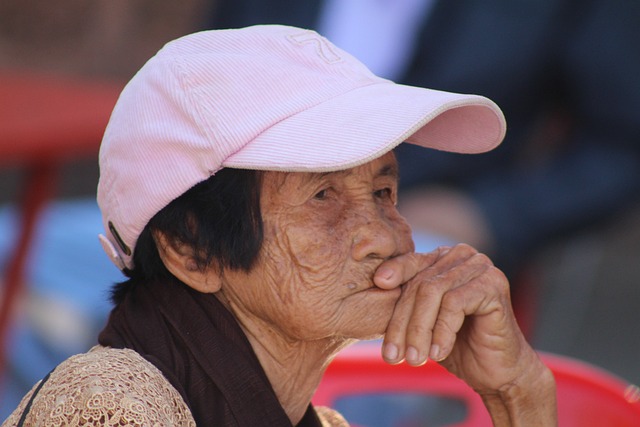
Soo-Jin is a 70 year-old widow. She lives alone in a flat, in the centre of a medium-sized city in Europe. She suffers from a slight motor disability but really likes, and needs, going for walks. She enjoys studying the evolution of work in society. She needs to visit family and friends at least once a week so as not to stay alone.
Case#1: Soo-Jin has an appointment with the dentist, 3km from her home. And then she might go to the pharmacy on the way back.
Soo-Jin lives in the city, so she has several options. She can either use public transport within walking distance of her home, where she can sit down, and which is powered by green electricity; or she can use on-demand community transport – carpooling, or light ‘rickshaw’-type bikes. If especially tired, she can always ask a family member to accompany her.
Since the pharmacy is close to the doctor’s surgery, she can stop off there on her way home. She can also request delivery by bicycle.
Her favorite pharmacy is in another neighbourhood, but offers an innovative concept. It’s a botanical garden where picking is supervised to glean the medicinal plants best suited to the needs of each individual. This means she can walk a little longer in the company of others in pleasant surroundings.
Case#2: Soo-Jin is invited to lunch with her niece and family. They live in the countryside 20km from her flat.
Soo-Jin has several options here too. She can order an on-demand minibus, which can adapt its routes to meet her needs. In her case, the bus lets her walk the last 10 minutes.
She can also rent a very small, ultra-efficient, solar-powered car for the evening.
She can also book her journey on ‘blabla-horse’ or ‘blabla-bike’.
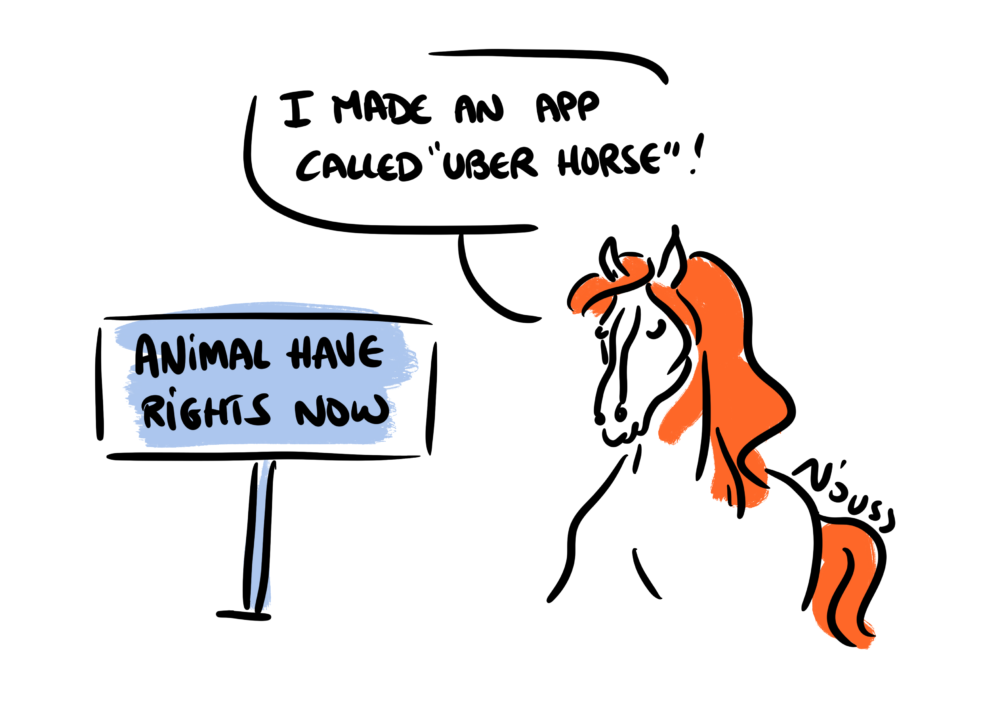
Find out more about talented illustrator Youssra Mahdi alias N’ouss 👉 www.crazynouss.fr

